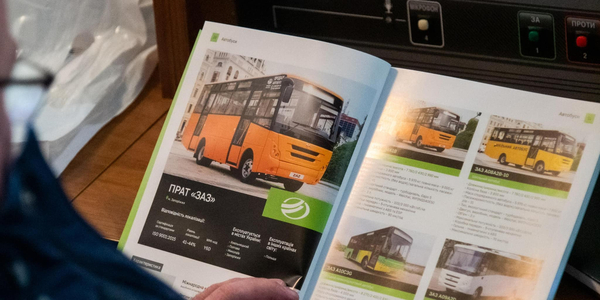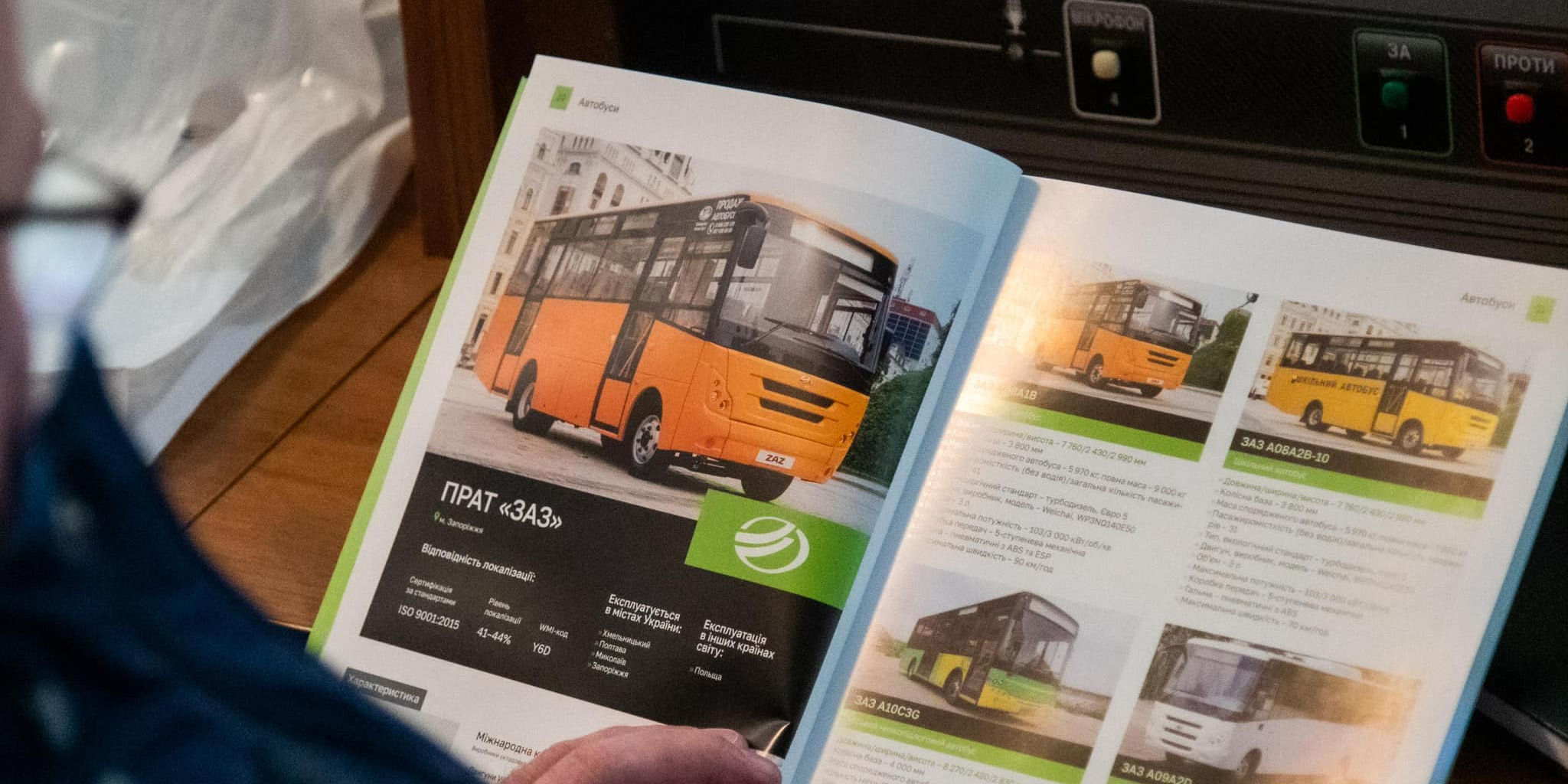Catalogue of Ukrainian vehicle manufacturers presented to communities: Why it is important
Meetings with community representatives are held in the regions to present the Catalogue of Manufacturers of Ukrainian Vehicle for Communities, which includes 255 units of wheeled vehicles manufactured by 32 companies from 14 regions of Ukraine.
Meetings have already been organised for the communities of Khmelnytskyi, Chernivtsi, Ternopil and Volyn regions.
Such regional meetings are aimed at engaging communities in the process of fundamentally changing the state economic policy. Currently, it is focused on three priorities:
- Support for Ukrainian production.
- Stimulating investment in industry.
- Growth of non-resource exports.
MP Dmytro Kysylevskyi informed about this.
Making these priorities meaningful should ultimately lead to the eradication of poverty.
‘What should be the contribution of communities to the implementation of this policy? First of all, billions of hryvnias of public procurement by city and village councils, utility companies and agencies should be spent on Ukrainian-made products. This will ensure that, in difficult war conditions, up to 40% of the money spent can be returned to the budgets of all levels and used to help the Armed Forces of Ukraine. Otherwise, one buys a Chinese bus and financially supports the Chinese army. Another important argument is that every bus manufactured in Ukraine provides jobs for contractors located in more than 200 communities across the country. Otherwise, one buys Turkish equipment, deprives Ukrainians of their jobs, and takes care of the employment of citizens of neighbouring Turkey,' the MP commented.
According to the MP, these arguments underlie the policy of localisation in public procurement, which is part of the national policy ‘Made in Ukraine’.
‘Did the war make all Ukrainian communities support domestic manufacturers? No, even such a difficult lesson only made some Ukrainian communities think about economic patriotism. Many community representatives are still unaware that, despite the war, Ukraine produces almost the entire range of utility and special vehicles: from excavators and garbage trucks to buses, fire and rescue equipment and ambulances. Most of them are presented in the catalogue of manufacturers ‘Ukrainian vehicles for communities’,’ said Dmytro Kysylevskyi.
He added that business factors also favour Ukrainian manufacturers of vehicles for communities. The proximity of service and maintenance facilities and warehouses with spare parts is very important in times of war and unpredictability at the borders. Ukrainian manufacturers are much more willing to respond to individual customer requirements than those from abroad. After all, the life cycle of Ukrainian vehicles is much longer and cheaper than that of Turkish or Chinese ones.
‘Not only do communities learn about Ukrainian manufacturers, but also manufacturers learn about the needs of communities through the All-Ukrainian Roadshow “Ukrainian Vehicles for Communities”,’ the MP said.
During the events, communities voiced their needs for wheeled vehicles.
For instance, communities in Volyn region need 225 wheeled vehicles. In particular, 3 fire trucks, 16 healthcare vehicles, 41 school buses, 37 public transport vehicles, 112 utility vehicles, 13 road vehicles, and 3 social service vehicles.
Communities in Ternopil region need 365 wheeled vehicles. In particular, 64 school buses, 63 public transport vehicles, 53 healthcare vehicles, and 52 social services vehicles.
Communities in Khmelnytsky region needs 589 wheeled vehicles. These include 104 school buses, 119 ambulances, 139 public transport vehicles, 124 road vehicles, 48 utility vehicles, and 55 social taxis.
An estimated 501 wheeled vehicles are requested for the Chernivtsi region. In particular, 105 public transport vehicles, 140 utility vehicles, 94 special vehicles and 162 units of attachments.
‘All these figures provide valuable information for Ukrainian manufacturers whose representatives participated in the meetings with the communities. Many of them approached the mayors immediately after the event to discuss the details of possible cooperation. Such contacts are another important aim of these meetings. It is a normal international practice for a community representative to ask about the possibilities of producing a particular unit of vehicles. Therefore, more determination is needed for communication on the part of both local authorities and representatives of Ukrainian manufacturers,' said Dmytro Kysylevskyi.
In MP Kysylevskyi's opinion, it is time to get rid of complexes about Ukrainian manufacturing. If not war, then what other ‘teachers’ should emerge to teach a simple truth: ‘Made in Ukraine’ is cool.

Attached images:
Tags:
Source:
Decentralization portal

20 February 2026
Місцева статистика: Як перетворити розрізнені...
У Києві відбулася стратегічна зустріч "Статистика громад", організована Державною службою статистики України за...
20 February 2026
I_CAN розпочав масштабування по всій Україні своєї Навчальної програми з управління публічними інвестиціями для...
20 February 2026
Language of Development Part 2: Funds and Instruments of EU Cohesion Policy
Language of Development Part 2: Funds and...
With the “language of development”, we describe not only the goals and principles of EU regional policy, but also...
19 February 2026
Анонс: вебінар «Обговорення змін до Порядку...
Які практичні кроки мають здійснити керівники та педагоги, щоб ефективно впровадити ключові зміни до Порядку...